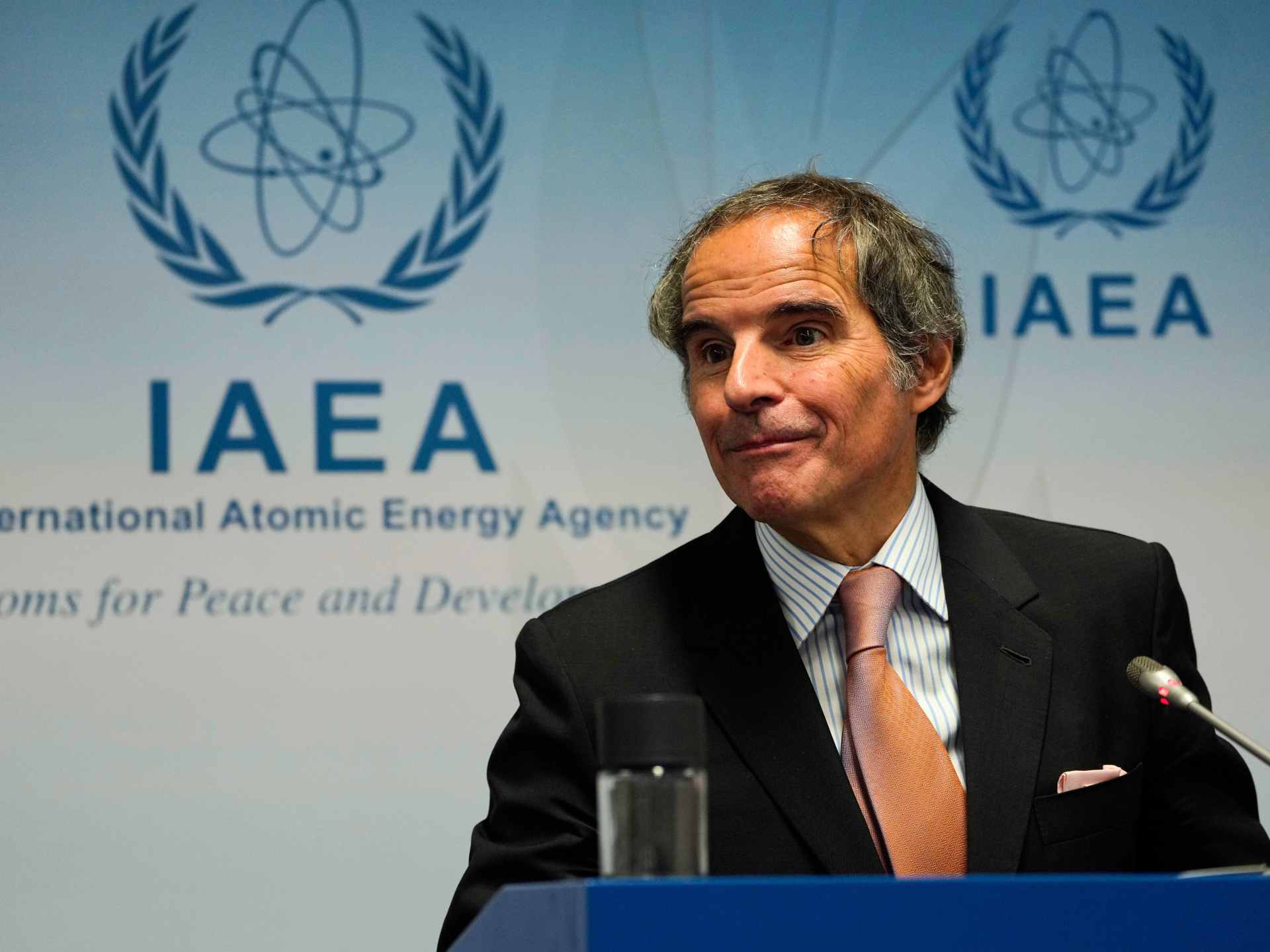The UN nuclear watchdog warns Tehran could be close to weapons-grade enriched uranium, as negotiations with the US continue.
The United Nations nuclear watchdog says Iran has increased its stockpile of highly enriched, near weapons-grade uranium by 50 percent in the last three months.
The report by the International Atomic Energy Agency (IAEA) on Saturday comes as nuclear deal negotiations are under way between the United States and Iran, with Tehran insisting its nuclear programme is for peaceful purposes only.
The IAEA said as of May 17, Iran had amassed 408.6kg (900.8 pounds) of uranium enriched up to 60 percent – the only non-nuclear weapon state to do so, according to the UN agency – and had increased its stockpile by almost 50 percent to 133.8kg since its last report in February.
The wide-ranging, confidential report seen by several news agencies said Iran carried out secret nuclear activities with material not declared to the IAEA at three locations that have long been under investigation, calling it a “serious concern” and warning Tehran to change its course.
Iranian Foreign Minister Abbas Araghchi, however, reaffirmed the country’s longstanding position, saying Tehran deems nuclear weapons “unacceptable”.
“If the issue is nuclear weapons, yes, we too consider this type of weapon unacceptable,” Araghchi, Iran’s lead negotiator in the nuclear talks with the US, said in a televised speech. “We agree with them on this issue.”
‘Both sides building leverage’
But the report, which was requested by the IAEA’s 35-nation board of governors in November, will allow for a push by the US, Britain, France and Germany to declare Iran in violation of its non-proliferation obligations.
On Friday, US President Donald Trump said Iran “cannot have a nuclear weapon”.
“They don’t want to be blown up. They would rather make a deal,” Trump said, adding: “That would be a great thing that we could have a deal without bombs being dropped all over the Middle East.”
In 2015, Iran reached a deal with the United Kingdom, US, Germany, France, Russia, China and the European Union, known as the Joint Comprehensive Plan of Action. It involved the lifting of some sanctions on Tehran in return for limits on its nuclear development programme.
But in 2018, then US President Trump unilaterally quit the agreement and reimposed harsh sanctions. Tehran then rebuilt its stockpiles of enriched uranium.
In December last year, the IAEA said Iran was rapidly enriching uranium to 60 percent purity, moving closer to the 90 percent threshold needed for weapons-grade material.
Western nations say such intensive enrichment should not be part of a civilian nuclear programme, but Iran insists it is not developing weapons.
Hamed Mousavi, professor of political science at Tehran University, told Al Jazeera the IAEA findings could indicate a possible negotiation tool for Iran during its ongoing nuclear talks with the US.
“I think both sides are trying to build leverage against the other side. From the Iranian perspective, an advancement in the nuclear programme is going to bring them leverage at the negotiation table with the Americans,” he said.
On the other side, he said, the US could threaten more sanctions and may also refer the Iranian case to the UN Security Council for its breach of the 2006 non-proliferation agreement. However, he added that Iran has not made the “political decision” to build a possible bomb.
“Enriching up to 60 percent [of uranium] – from the Iranian perspective – is a sort of leverage against the Americans to lift sanctions,” Mousavi said.
